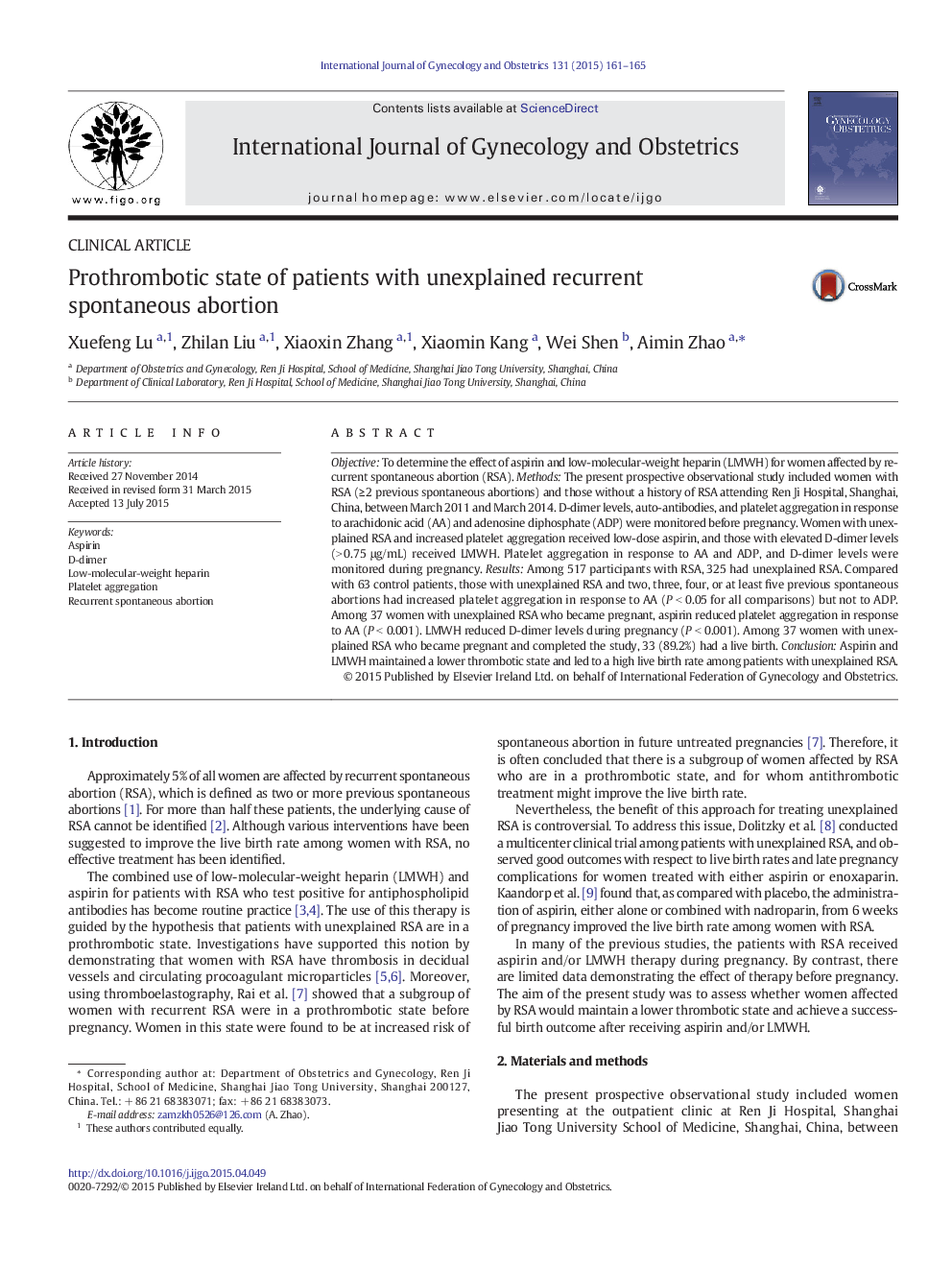| Article ID | Journal | Published Year | Pages | File Type |
|---|---|---|---|---|
| 3954036 | International Journal of Gynecology & Obstetrics | 2015 | 5 Pages |
ObjectiveTo determine the effect of aspirin and low-molecular-weight heparin (LMWH) for women affected by recurrent spontaneous abortion (RSA).MethodsThe present prospective observational study included women with RSA (≥ 2 previous spontaneous abortions) and those without a history of RSA attending Ren Ji Hospital, Shanghai, China, between March 2011 and March 2014. D-dimer levels, auto-antibodies, and platelet aggregation in response to arachidonic acid (AA) and adenosine diphosphate (ADP) were monitored before pregnancy. Women with unexplained RSA and increased platelet aggregation received low-dose aspirin, and those with elevated D-dimer levels (> 0.75 μg/mL) received LMWH. Platelet aggregation in response to AA and ADP, and D-dimer levels were monitored during pregnancy.ResultsAmong 517 participants with RSA, 325 had unexplained RSA. Compared with 63 control patients, those with unexplained RSA and two, three, four, or at least five previous spontaneous abortions had increased platelet aggregation in response to AA (P < 0.05 for all comparisons) but not to ADP. Among 37 women with unexplained RSA who became pregnant, aspirin reduced platelet aggregation in response to AA (P < 0.001). LMWH reduced D-dimer levels during pregnancy (P < 0.001). Among 37 women with unexplained RSA who became pregnant and completed the study, 33 (89.2%) had a live birth.ConclusionAspirin and LMWH maintained a lower thrombotic state and led to a high live birth rate among patients with unexplained RSA.
